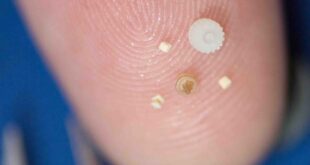The initiative aims to increase their awareness of how STEM (Science, Technology, Engineering and Mathematics) subjects are used in industry and provide experience first-hand about the careers and study routes available to students.
Recent studies have shown that teachers are one of the most important influences on students’ career choices.
However, according to research by the Association of Colleges, 82% of teachers feel they lack the necessary knowledge to offer careers advice.
“By hosting placements, we can help develop the understanding teachers have of STEM-related careers, ensuring they are better equipped to advise their students about the options available,” explains Anne Sutton, Training and Development Officer at TDK-Lambda UK.
To date the power supply manufacturer has hosted three separate visits.
Last summer, the company hosted David Davies, an electronics engineering lecturer from Petroc College, its first ‘STEM Insight’ placement. Following the week-long placement, he left enthused with an aim to develop ‘real-life’ project work for his students based on his experiences.
More recently, Robyn Burt, a member of the STEM teaching team at Ilfracombe Academy, said that the experience had given her lots of ideas for linking working practices with curriculum delivery.
She hopes to build on this experience with plans for further site visits with her students in the pipeline, as well as develop STEM delivery within the school.
The latest visit has been from Mark Holbourn, a mechanical engineering lecturer from Petroc.
“Like his predecessors, he experienced a variety of department operations across the business,” says Sutton. “He was particularly interested in our 5S operations and ongoing improvements in this area.”
The ‘5S’ methodology is a building block to enable Just-In-Time (JIT) manufacturing; it refers to the five steps – sort, set in order, shine, standardise and sustain.
“He was also very interested on the IPC standards of workmanship and the design manuals used as part of our procedures for bringing new products to market,” adds Sutton. “He intends to integrate this into the development of a new BTEC qualification he is working on and share with his colleagues to bring real-life processes into the classroom.”
 Engineer News Network The ultimate online news and information resource for today’s engineer
Engineer News Network The ultimate online news and information resource for today’s engineer



